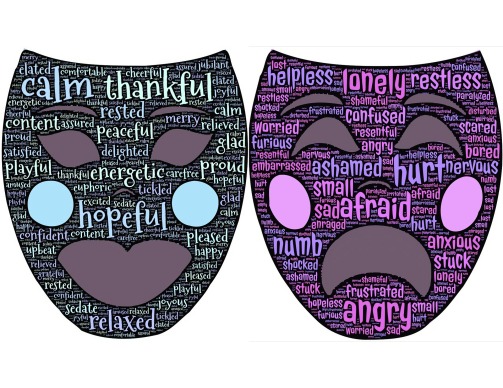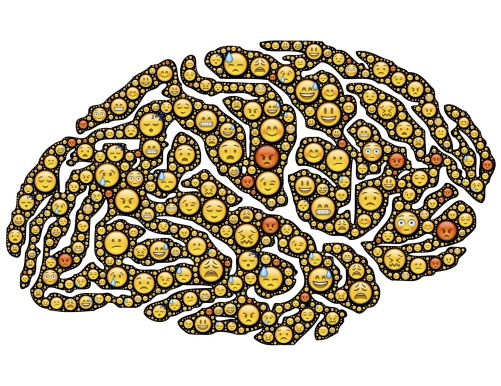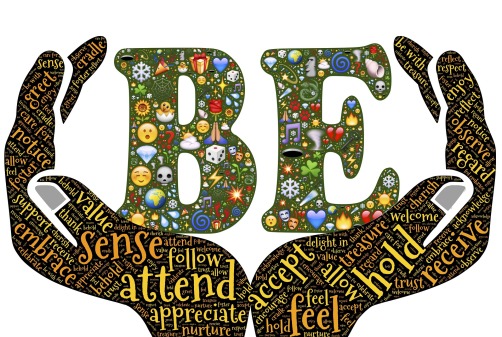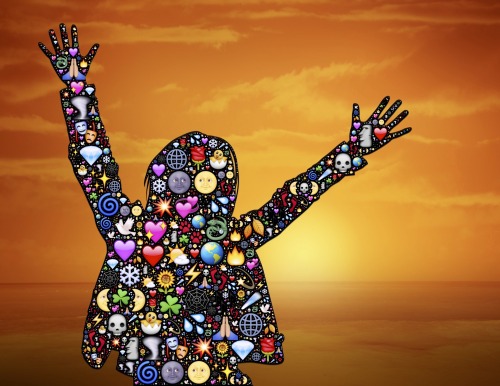So, we just moved. From our home of over 10 years in Norfolk, which we loved dearly, to Arlington, which we have dated before, are dating again, and with whom we hope to build a relationship of mutual affection and respect. The range of emotions we have experienced over the last month has been staggering and overwhelming.

Sadness, anxiety, loss. For leaving our 120-year old house, with its beauty and fond quirks. Our neighborhood, which held an incredible sense of community for us, one that we had not yet experienced in our adult lives. And perhaps, most difficult, saying “see you later” to our friends and family. Knowing that we would not sit on our porch again with them, having drinks, laughing, getting to know each other deeper and deeper. Accepting that we would no longer be hosting holiday get-togethers, or dinner parties, or my infamous Ladies Wine Club in that house.
Yet.
At the same time, there is a feeling of excitement at my husband’s new job. My own anticipation and happiness at meeting up with old and new colleagues and friends in D.C. Seeing the opportunities this new area will hold for my work. Having curiosity for a new neighborhood, with its beautiful trees, unique houses, and walk-ability to the train that will take us all over the nation’s capital. New restaurants, shops, museums, opportunities to meet new people. Hopeful planning on how I will infiltrate and get to know the group of older women who always meet at our local coffee shop, and seem to be engaged in the most interesting conversations. Deep appreciation and gratitude for dear Norfolk friends and family who helped us so much over the last month and will always be there for us.
How is it possible that I can hold all these emotions in me at the same time? Surely, we all can. But do we acknowledge this? In particular, do we recognize this in the experience of growing older? This cohabitation of different feelings, perspectives, and perceptions in one person – equally forceful, sometimes at the same time.  “We” in Gerontology are so fond of placing people and experiences in categories. An older person is “frail” OR “well”. They are aging successfully (or not, I guess, although I am not sure what that means?). Think of the stories we hear about growing older. There is the story of pure loss. Or all-encompassing illness. Or, there is the story of pure contentment. Overwhelming wisdom. “The best time of your life – the golden years.” We describe elders as having positive outlooks, or they are just pessimistic.
“We” in Gerontology are so fond of placing people and experiences in categories. An older person is “frail” OR “well”. They are aging successfully (or not, I guess, although I am not sure what that means?). Think of the stories we hear about growing older. There is the story of pure loss. Or all-encompassing illness. Or, there is the story of pure contentment. Overwhelming wisdom. “The best time of your life – the golden years.” We describe elders as having positive outlooks, or they are just pessimistic.
Could it be possible that this is ALL true? That for each person one could be both experiencing loss and feeling joy. Finding pleasure in small moments, and anger that one moves slower or with pain. Could it be that a person is both scared of growing older, and also looking forward to it? Could it be that a person with dementia is both sad and happy? Frightened and hopeful?
I think we neglect this so often in the experience of growing older. We neglect this idea that it is possible, even likely, that each person experiences a wide range of emotions related to their growing older, sometimes at the same time. And it is so complicatedly different for each person.
I am thinking of a man with whom I worked, who had dementia. He was a world-renowned artist, and when he moved into the assisted living community, he was devastated. He was so angry that he destroyed his own artwork. We were so focused on making sure that he was making a positive transition. But did we also allow him to mourn his losses? To just be and experience the sadness, as well as the lovely possibilities of living a different life with new people. Did we even acknowledge how hard it was for him to move into this new place, leaving not just his house but his identity? We were so focused on him adjusting, with good intent, but we didn’t honor what he was leaving behind. He was experiencing a wide array of emotions. What could we have done so he could have held them all in the same space?

Do we assume that people, as they grow older, are uni-dimensional? Do we emotionally anesthetize them to the point that we forget that they are complex just like any human being?
I would argue that there is evidence of this. And I think it is so detrimental. Because this is a condition of being human – to be all these things at once. It is important to recognize this for each individual as we grow older, but it is also important to how we think about aging overall. Growing older is not one experience, one emotion, one category. Growing older, i.e. living life, is an array of experiences, emotions, and sensations. All at the same time. I think this is true because, not only do I see this in my own living, I have heard this from others. From the person living with dementia who tells me about their pain and sadness, as well as gratitude for how this has brought them closer to family and taught them to appreciate the little things. I have heard the person who left her home, her community, and her friends to live in a new community, and found love and companionship.
I think there is significant impact to this possibility – that we see people as they grow older as uni-dimensional and perhaps over-simplified. I haven’t totally gotten my head wrapped around it yet, but I think it is there, and we need to be aware of it.
How are we not honoring the full spectrum of the individual experience of aging, for the individual, and for our society? How does this impact how we serve elders? What can we do about this?

This is what happens when I am stuck in too many moving boxes. I am bursting. Thanks for listening.
Note: All of the artwork in this post was created by John Hain. Of his work he says, “I offer messages that promote practices of self-awareness, mindfulness, and non-judgmental withness in the quest for human wholeness, wellbeing, and communion.” See more of his work at http://www.Built4Love.com.

I hope all goes well with your move and (what I call) New Beginnings.
LikeLiked by 1 person
It is, indeed, all true, Sonya… and, yes, all at the same time….
LikeLiked by 1 person
Agree, totally! Thank you for focusing on this.
My overall perspective is that most here can be boiled down to “Us” vs “Them” thinking:
FIRST, we all have some Tribalist tendencies, along with primitive attitudes that lead us to have lower regard for members of the less powerful “out group”—“Them”.
In raw form, this becomes de-humanization that can be manifested as intolerance and hate—like we hear much too often in our society today.
When we fear that we will become like “Them” (old, or “crazy”, or dependent, etc,) and/or when we feel that we must hold tightly to our professional control, we tend to intellectualize and compartmentalize the individuals so that we no longer consider them people. Our various disciplines focus on creating conceptual boxes and categories for the “Thems”, including aspects of their behavior.
Note: In the past, Tribalist attitudes of bigotry were acceptable as jokes about specific Ethnic groups. Today among members of our society who respect decency and inclusion, etc—- the last acceptable group to verbalize prejudice about are members of the Elder Group—older people.
SECOND, we have a long history of major power differentials in Care Systems—Caretakers vs Care recipients, Staff vs Patients, hierarchy of disciplines, etc.
Only recently has Healthcare recognized needs for change to empower people who are served.
Almost everyone who has experienced the hospitalization or skilled nursing admission of a loved one
within the past few years agrees that progress is very slow towards staff attempts to view the situation from the perspective of the person served.
Conclusion:
This is an area that has become a major interest for me since I retired several months ago—and sense that I am becoming a “Them”!
LikeLike
Ginnie, I love what you said and you are so right! This whole us and them thing. I have tried to become aware of my own language, when I refer to others who are older. In fact, it is why I changed my “tagline” to “changing the way we care for each other as we age”, rather than “changing the way we care for people as they age”. Because we is they!
LikeLike
As always, Sonya, your thoughts are right on and eloquently stated. Looking forward to “following” your blog posts. Congratulations on your move! Hope you guys will be very happy there!
LikeLiked by 1 person
Sonya, Wow! I don’t know why, truly, I have not been here, to this blog before. I can only assume the original invite happened at a time I was deleting all my junk emails( most) and yours ( not junk) got mixed in. This has been my loss over the past months. You bring up many thought provoking thoughts( redundant). I can’t begin to tell you how this resonates with me and today-especially- my experiences alone with my father and an older woman I was driving for her hair appt. and the other older woman who wanted to come along. Maybe this weekend I will pop in again more detail. Aging is life, interesting and what it is all about.
Patti
LikeLiked by 1 person